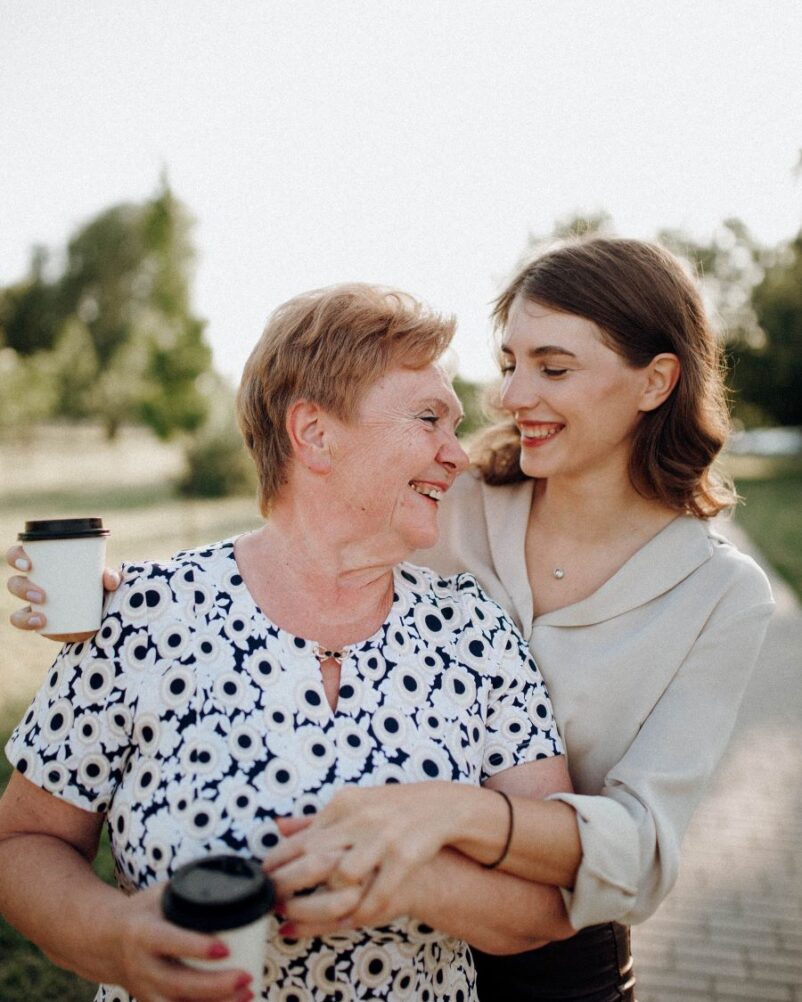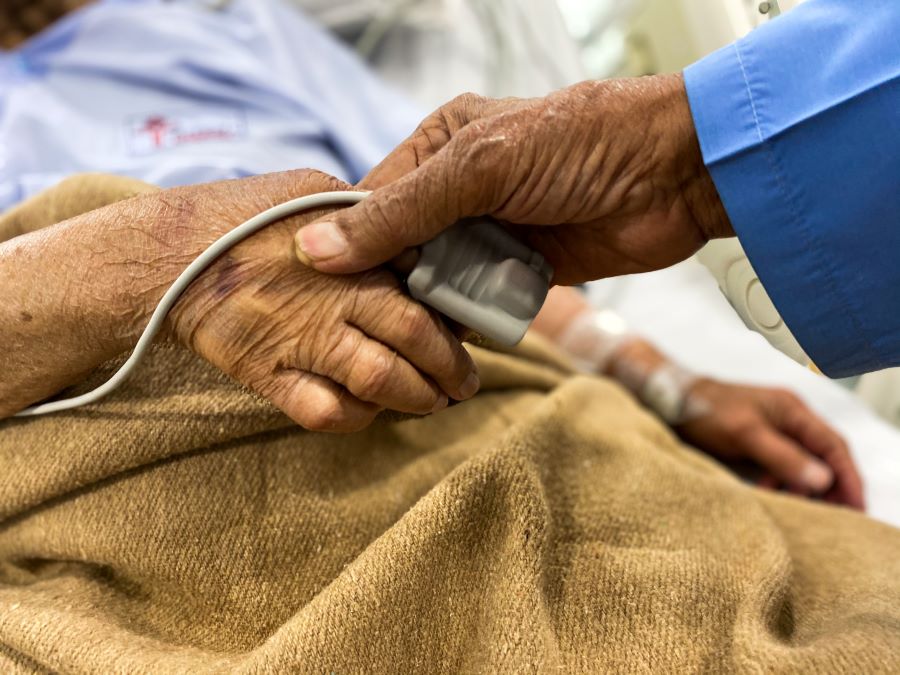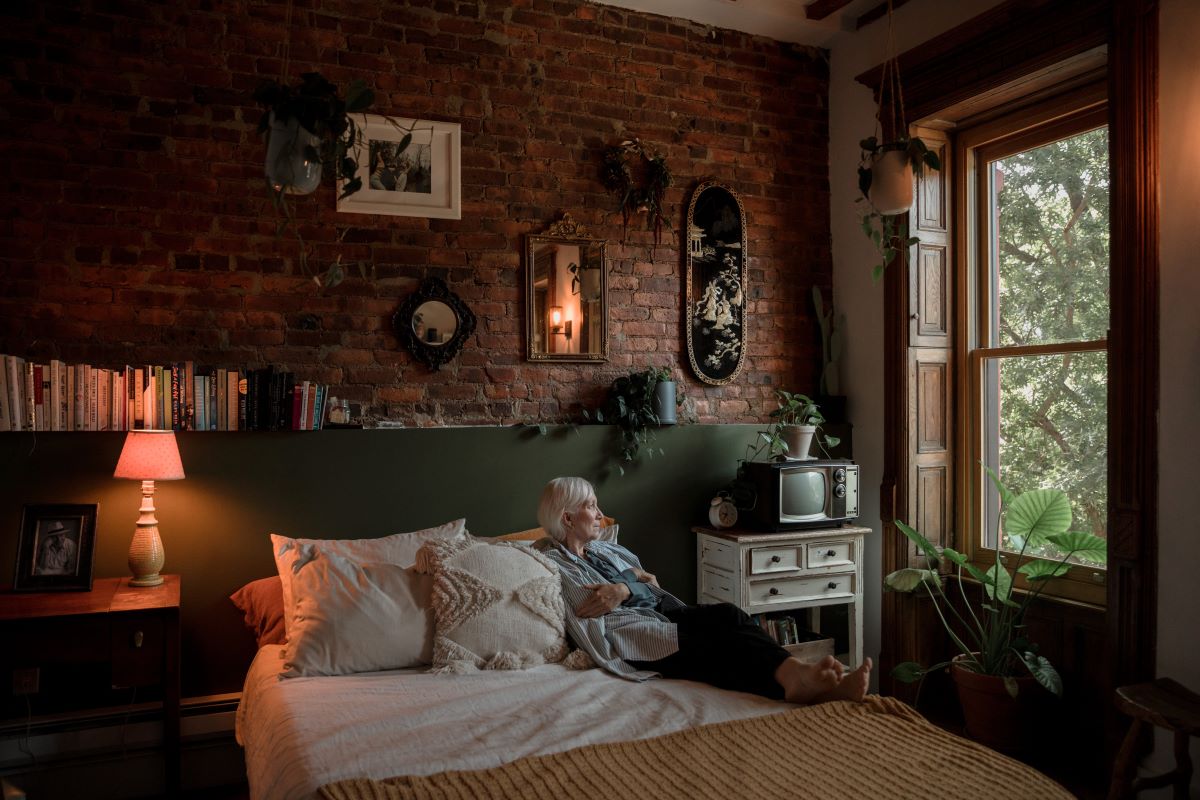
As we grow older, so do our loved ones, and with age often come new challenges that can affect senior care and overall well-being. When visiting older relatives and friends, it’s important to be vigilant for potential red flags that may indicate a decline in physical or mental health.
Whether you’re dropping by for a casual visit or staying for an extended period, being aware of these geriatric care warning signs can help ensure the safety and comfort of aging family and friends.
From subtle changes in behavior to more overt signs of neglect or deterioration, recognizing red flags early on can make a significant difference in addressing issues before they escalate. By understanding what to look for and how to respond, you can play a crucial role in supporting your older individuals as they navigate the complexities of aging.
Here are some common senior care red flags to watch for when spending time with the elderly and practical tips to consider on how to approach these sensitive topics with compassion and empathy.
6 Senior Care Red Flags When Visiting Elderly
- Senior Care and Their Physical Environment:
As we visit our older relatives and friends, it’s crucial to pay attention to their physical environment as part of ensuring appropriate elder care, especially if they live alone.Take note of any signs of neglect or safety hazards in the home. Look out for cluttered pathways, uneven flooring, or poor lighting that can increase the risk of falls.
Additionally, assess the overall cleanliness and upkeep of the living space as it can impact your favorite people’s physical well-being.
Also, consider the accessibility and usability of essential items within their environment. Are daily necessities within easy reach? Is furniture arranged for optimal functionality?
These factors play a significant role in promoting independence and quality of life for our older loved ones. By observing these aspects of their physical environment, we can better understand the level of support they may need to maintain a safe and comfortable living space as part of their overall senior care.
To summarize, geriatric care within an older individual’s the physical environment can be determined by reviewing clutter, odors, cleanliness, and safety hazards.
- Personal Hygiene and Appearance:
Personal hygiene and appearance are important indicators of overall geriatric care and well-being.Paying attention to changes in older individual’s grooming habits, such as unkempt hair, body odor, or unclean clothing, can provide valuable clues about their physical or cognitive health.
It’s essential to approach these discussions with sensitivity and empathy to understand the reasons behind any deterioration in personal care routines.
Encouraging open communication and offering support in maintaining hygiene can significantly impact an elder’s confidence and self-esteem.
Paying attention to changes in an older individual’s appearance goes beyond just grooming habits; it can also reveal potential signs of underlying health issues in conjunction with geriatric care. For instance, sudden weight loss or disheveled clothing may indicate difficulties with mobility or activities of daily living.
By recognizing these red flags early on, you can help older friends and loved ones address any health concerns and provide them with the necessary assistance to maintain their personal hygiene and appearance. Letting them know that they are not alone in this journey is crucial for building trust and fostering a positive attitude toward self-care.
Key factors to keep in mind: Poor grooming, unkempt clothes, and neglect of personal geriatric care
- Geriatric Care and Cognitive Function:
When visiting elders, it’s important to pay close attention to their cognitive function. Changes in memory, decision-making abilities, and thinking processes can indicate potential underlying health issues. Keep an eye out for signs of confusion, disorientation, or forgetfulness that seem more pronounced than usual.These could be red flags for conditions such as dementia or Alzheimer’s disease. It’s crucial to approach the topic with sensitivity and compassion, while also seeking professional medical advice if you notice concerning changes in cognitive function associated with typical aging and geriatric care.
Understanding the complexities of cognitive function in older adults requires a deeper appreciation of the aging process. As individuals age, natural declines in certain cognitive abilities can occur. However, distinguishing between normal age-related changes and more serious cognitive decline is essential.
Engage older individuals in stimulating conversations and activities to help maintain their mental acuity as they navigate the aging process and associated senior care. A proactive approach to promoting cognitive health can lead to better overall well-being and quality of life for your loved ones as they grow older.
Key factors to look for: Forgetfulness, confusion, and repeating questions or stories.
- Senior Care and Medication Management:
One crucial aspect of visiting older relatives is being mindful of their medication management. Red flags to watch for include disorganized pill bottles, expired medications, and confusion about dosage schedules. With family members especially, it’s important to have open conversations with them about their medications, including any side effects or changes in prescriptions.
With family members especially, it’s important to have open conversations with them about their medications, including any side effects or changes in prescriptions.Proper medication management can significantly impact an individual’s overall health and well-being. By staying vigilant and offering support when needed, you can help your older relatives avoid potential medication-related issues such as adverse drug interactions or missed doses.
Encouraging them to use pill organizers or consider a medication reminder app can also contribute to better adherence and ultimately improve their quality of life.
Paying attention to medication management during visits to older relatives is essential for ensuring their geriatric care health and safety. Observing red flags related to their medications can lead to important conversations and necessary interventions that could ultimately make a positive difference in their lives.
Important factors to watch for with geriatric care: Unfilled prescriptions, expired medications, confusion about dosages.
- Emotional Well-Being and Geriatric Care:
Emotional well-being is a crucial aspect of overall health, especially as we age. While physical health often takes precedence, it’s important not to overlook the emotional well-being of older individuals. Aging can bring about a range of emotions including loneliness, anxiety, and depression.It’s essential for friends and family members to be aware of these emotional shifts and provide the necessary geriatric care support and companionship.
As we visit our older friends and loved ones, it’s imperative to pay attention to changes in their behavior or mood that could indicate declining emotional well-being. Keep an eye out for signs such as withdrawal from social activities, loss of interest in hobbies, or unexplained changes in sleep patterns.
These red flags may be indicative of underlying emotional struggles that require attention and compassion from loved ones in terms of senior care.
By being aware of these indicators and offering support when needed, we can help maintain the emotional well-being of our aging individuals and contribute to their overall quality of life.
Key senior care considerations associated with emotional health: Isolation, depression, and unexplained mood swings
- Senior Care Financial Management:
When visiting older relatives, it’s essential to keep an eye out for red flags in their financial management. Many seniors may struggle with managing their finances due to cognitive decline or other factors, making them vulnerable to financial exploitation.A red flag to watch for is recurring missed bill payments or unopened mail, which could signify confusion or inability to manage their finances effectively.
Another warning sign is unusual large cash withdrawals or unfamiliar purchases on their bank statements, indicating potential fraud or unauthorized activity.
Additionally, outdated financial arrangements such as high-interest loans or risky investments could signal a lack of understanding of current financial options and potential vulnerability to scams.
Engaging in open and honest conversations about financial matters with your older relatives can help identify these red flags early on and provide the necessary support and guidance they need to protect themselves from financial exploitation.
By staying vigilant and proactive in identifying these warning signs, you can help safeguard your loved ones’ financial well-being and ensure a secure future for them.
Red flags to watch for with senior care considerations: Unpaid bills, unusual spending patterns, and scams or fraud.
Signs of Deterioration in Elderly
 Being attuned to the red flags when visiting older friends or loved ones is crucial for safeguarding their well-being and quality of life. It is essential to recognize that these red flags are not meant to instill fear or suspicion but rather to encourage a thoughtful assessment of our aging loved ones’ needs.
Being attuned to the red flags when visiting older friends or loved ones is crucial for safeguarding their well-being and quality of life. It is essential to recognize that these red flags are not meant to instill fear or suspicion but rather to encourage a thoughtful assessment of our aging loved ones’ needs.
By proactively identifying potential issues, we can offer support and intervention in a timely manner, ultimately enhancing the safety and comfort of our aging family members.
Additionally, it’s important to approach these observations with empathy and understanding, acknowledging that aging can be a complex and challenging process. While some geriatric care red flags may indicate areas where help is needed, they also provide an opportunity for meaningful connection and support.
By fostering open communication with our older relatives and addressing any concerns with compassion, we can create an environment where they feel valued and cared for as they navigate senior care changes that come with aging.
Read more on ways you can maintain an active lifestyle and promote positive brain health and robust mental health overall.
Senior Denial Articles on Maintaining Physical and Mental Health
Additional blogs you might enjoy:
- Depression and the Elderly: the Hidden Struggle of Feeling Down
- Walking for Mental Health: Strolling Along to Better Wellness
- The Hidden Culprits Behind Stubborn Belly Fat in Seniors
- Breaking the Taboo: Speaking Out on Aging and Mental Health
- Debunking 11 Tired Stereotypes and Myths About Aging
Written by
Robin McClure
Robin is the author of 7 parenting books and has 3 grown children, 3 spoiled rescue dogs, and a very understanding husband. She holds a bachelor's degree in journalism and a master's degree in communications, and spends her time writing, drinking coffee, and planning the next grand adventure.



